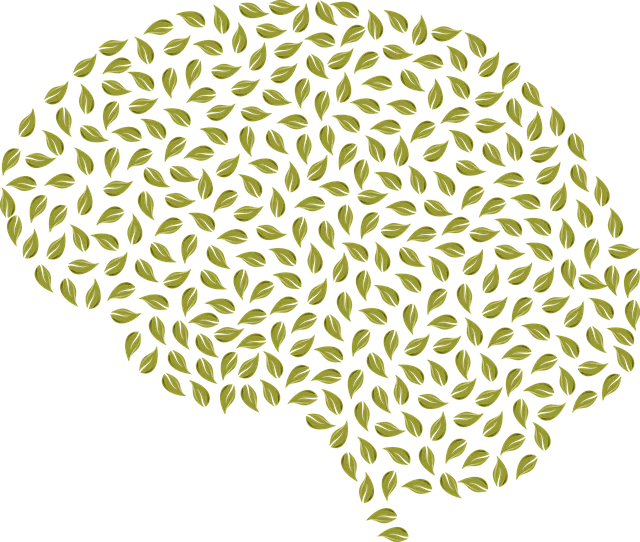Centennial Kaiser Permanente mental health services leverages robust Crisis Intervention Team (CIT) training, integrating diverse professionals who collaboratively manage emotional crises through evidence-based interventions and self-care cultivation. This program combines theoretical knowledge with practical skills, fostering open dialogue, improving staff and patient outcomes, and promoting a resilient work environment. Continuous improvement through refresher courses, workshops, and feedback integration ensures CIT teams remain adept at handling crises with empathy, efficiency, and clinical rigor.
Crisis intervention team (CIT) training programs are vital in enhancing mental health care support. This article explores the crucial role of CITs and provides a deep dive into their impact on patient outcomes, particularly highlighting the successful model implemented by Centennial Kaiser Permanente in their mental health services. We discuss essential curriculum components and strategic implementation approaches to ensure high-quality crisis support. By examining these aspects, we aim to showcase best practices for effective CIT training programs.
- Understanding Crisis Intervention Teams: Their Role and Impact in Mental Health Care
- The Centennial Kaiser Permanente Model: A Leading Example of Effective Training Programs
- Essential Components of a Comprehensive Crisis Intervention Team Training Curriculum
- Implementation and Continuous Improvement: Strategies for Sustaining High-Quality Crisis Support Services
Understanding Crisis Intervention Teams: Their Role and Impact in Mental Health Care

Crisis Intervention Teams (CITs) play a vital role in mental health care, especially in situations where individuals face severe emotional distress or psychiatric emergencies. These specialized teams are designed to provide immediate support and stabilization to those experiencing a crisis, aiming to de-escalate potentially dangerous situations. At Centennial Kaiser Permanente mental health services, CIT training programs have gained prominence as an effective approach to enhancing the well-being of both patients and caregivers.
The primary goal of a Crisis Intervention Team is to offer rapid response and evidence-based interventions, ensuring that individuals receive the necessary care promptly. By integrating various mental health professionals, first responders, and community support staff, CITs foster a collaborative environment. This team approach allows for comprehensive assessments and tailored strategies to address complex mental health challenges. Through regular training sessions, members learn self-care practices and compassion cultivation techniques, enabling them to provide empathetic support while maintaining their own well-being—a crucial aspect of effective crisis intervention.
The Centennial Kaiser Permanente Model: A Leading Example of Effective Training Programs

The Centennial Kaiser Permanente Model stands as a shining example of comprehensive crisis intervention team (CIT) training programs. This pioneering approach integrates mental health services within an organized and structured framework, ensuring that healthcare professionals are well-equipped to handle critical situations. By combining advanced training with practical exercises, the model promotes effective communication, risk assessment for mental health professionals, and efficient stress management among team members.
Centennial Kaiser Permanente’s CIT program emphasizes the importance of mental wellness journaling as a valuable tool for self-reflection and peer support. This technique encourages individuals to document their experiences, fostering an environment where open dialogue about challenges and successes becomes the norm. Through such innovative guidance, the program not only enhances the team’s ability to navigate complex crises but also contributes to improved mental health outcomes for both professionals and patients, as documented in various Mental Wellness Journaling Exercise studies.
Essential Components of a Comprehensive Crisis Intervention Team Training Curriculum

A comprehensive crisis intervention team training program should incorporate several essential components to ensure effectiveness and preparedness. One of the key areas is educating participants about various mental health conditions, their symptoms, and how they can impact an individual’s behavior during a crisis. Understanding these aspects enables team members to respond with empathy and cultural sensitivity, tailoring interventions to meet diverse needs.
Additionally, training should emphasize practical skills for crisis assessment, de-escalation techniques, and safe intervention strategies. This includes role-playing scenarios that mimic real-life situations, allowing teams to practice their communication, problem-solving, and decision-making abilities. The program must also address self-care practices for team members, as supporting individuals in distress can be emotionally taxing. Incorporating stress management techniques, such as mindfulness and resilience building, alongside mental health awareness, fosters a healthy work environment, enhances job satisfaction, and promotes effective long-term performance, as seen in the mental health services provided by Centennial Kaiser Permanente.
Implementation and Continuous Improvement: Strategies for Sustaining High-Quality Crisis Support Services

Implementing crisis intervention team (CIT) training programs requires a strategic approach to ensure their long-term effectiveness. Centennial Kaiser Permanente mental health services have recognized the importance of continuous improvement in delivering high-quality crisis support. Regular refresher courses and workshops are essential to keep professionals updated with the latest evidence-based practices, such as Social Skills Training and Compassion Cultivation Practices. These sessions not only enhance technical skills but also foster a supportive learning environment, encouraging open discussions around challenging cases and ethical dilemmas.
Moreover, integrating ongoing feedback mechanisms from both trainees and practitioners is vital. Regular evaluations post-training can identify areas for improvement, whether it’s refining risk assessment techniques or enhancing de-escalation strategies. By adopting these continuous quality improvement models, CIT programs can adapt to evolving mental health landscapes, ensuring that professionals are well-equipped to handle crises with empathy, efficiency, and clinical rigor, reflecting the highest standards of care as exemplified by Centennial Kaiser Permanente’s commitment to excellence.
Crisis intervention team (CIT) training programs play a pivotal role in enhancing mental health care. As demonstrated by the Centennial Kaiser Permanente model, effective CIT training can lead to improved patient outcomes and staff satisfaction. A comprehensive curriculum should cover key components such as crisis assessment, de-escalation techniques, and post-crisis follow-up. Through continuous improvement strategies, organizations can sustain high-quality crisis support services, ensuring that their teams are equipped to handle mental health crises with compassion and professionalism, akin to the successful model set by Centennial Kaiser Permanente in its mental health services.






